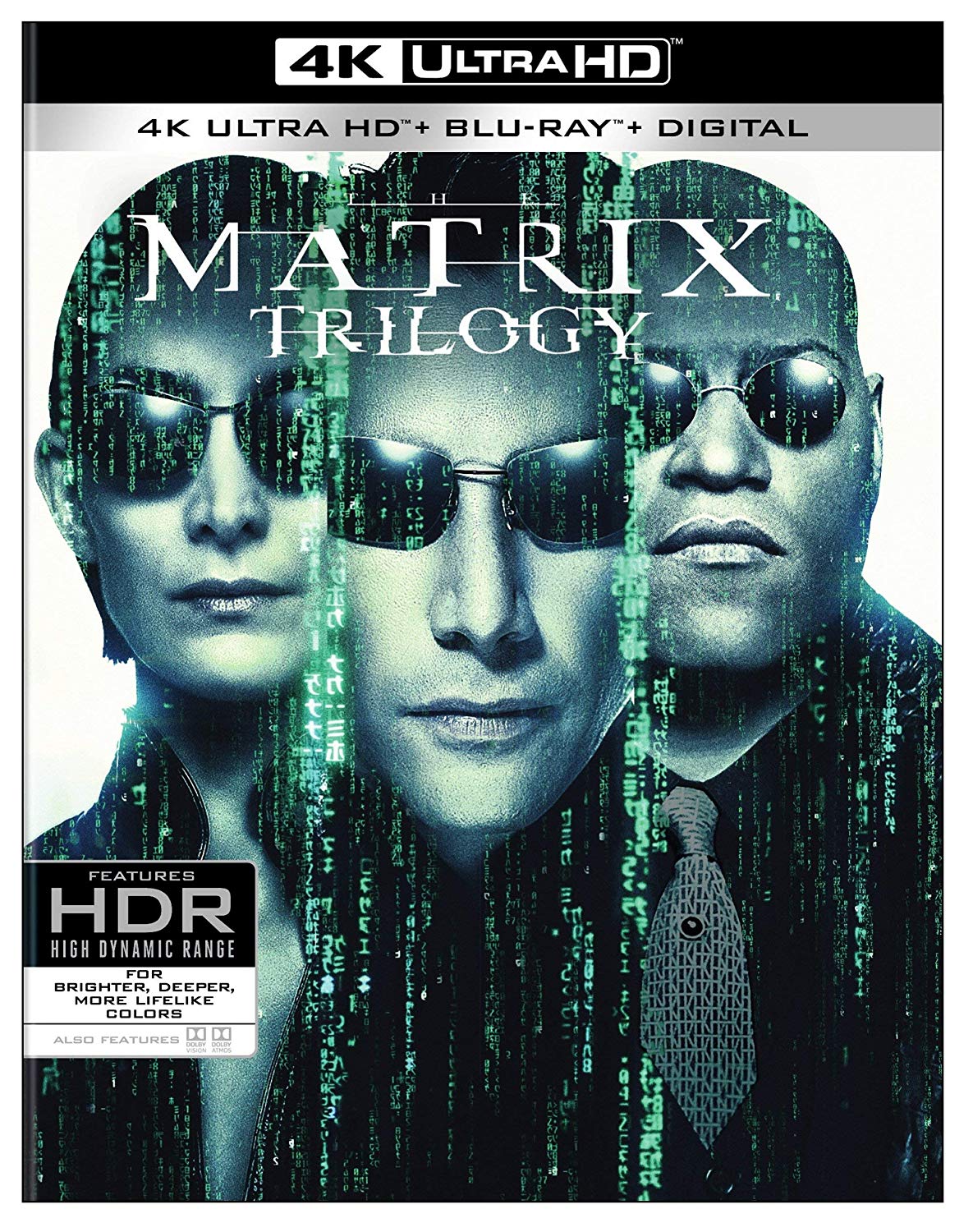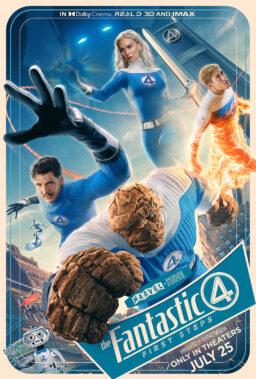The turn from standard HD Blu-rays to 4K releases allows for reappraisal of films that once dominated the previous home markets and the timing seems particularly interesting to take another look at “The Matrix,” “The Matrix Reloaded,” and “The Matrix Revolutions.” Not only have Lilly and Lana Wachowski recently announced that they are shutting down their Chicago production house and have no projects planned, ostensibly saying they’ve retired (although we all hope temporarily), but the films have become something of a hot button subject in the political world, although it’s interesting how much both sides of the political aisle like to stake claim to them. Republicans will point to the red pill setting you free from ideological thinking—the idea being that going red, or Republican, will allow you to see the world the way it really is, free from the idealism often used to describe Democrats. However, rewatching the films in 2018—the final one on Election Day, no less—makes their progressive politics even more transparent. These are films about an underground group of people, many of them played by minorities, who overthrow a violent, corrupt system personified by nearly-identical white men. Drain the swamp indeed.
Ignoring for a minute the political climate that makes these films even more interesting this particular week, they have all held up surprisingly well as entertainment, way more ambitious than most of the high-budget franchises we see today, especially the first movie, which is one of the few 20-year-old films that feels like it could land in theaters today and still be a smash hit. In fact, it might be even bigger today than it was then. It hasn’t aged a bit.
Of course, that movie is “The Matrix,” a movie for which it is hard to explain how groundbreaking it felt to young people who weren’t there for it in 1999. Keep in mind that Hollywood blockbusters looked a lot like Joel Schumacher’s Batman movies in the late ‘90s. They didn’t look like comic books inspired by Asian cinema (Kung Fu and anime are huge influences here). Hits from the year before included CGI-heavy affairs like “Armageddon” and “Godzilla,” films that felt impersonal and made-by-committee. “The Matrix” was breathtakingly new, incorporating classic themes—it really is a variation on “Star Wars” in the way Neo/Luke become “the one” who can lead the Resistance to stop the Empire—into a new vision driven by two of the most interesting visual artists of the last two decades. The first film still works from front to back. It’s remarkable how many of its beats I completely remembered even though I hadn’t seen it in a decade or more. It’s just a part of the collective film memory we all have now.
Comparatively, I had forgotten most of “The Matrix Reloaded” and “The Matrix Revolutions,” and likely will do so again in about a week, but there are elements here that work better than you remember, particularly in the second film. I remember the disappointment that greeted the films when they were released, but they’ve held up. Sure, the Wachowskis erred by moving the story away from Neo/Trinity/Morpheus to new supporting ones about whom audiences cared significantly less and weighing everything down in increasingly silly philosophical mumbo-jumbo, but there are ideas—both narrative and visual—that were daring and ambitious, two words not often associated with high-budget sequels. The Zion Rave sequence in the second film alone is a fascinating piece of cinema that I’m not 100% sure works but I do you know that you just don’t see things like it in blockbusters nowadays. (Watch this great take from Donna Bowman on it.)
There’s a lot of that in the second and third films: ideas that are distinctly the Wachowskis and not the product of a studio. It’s amazing to see how much creative freedom they were given. Now, the third film smashes into a few walls in terms of pacing, so perhaps a few notes might have been OK, but it’s still refreshing to see auteurs given large, franchise budgets with which to play, and seeing how much the Wachowskis chose to expand their canvas instead of just repeating what worked the first time. It just doesn’t happen anymore.
How will history view The Matrix Trilogy? We’re about a generation away from when they were originally released, and I’m looking forward to my sons being old enough to watch them. Will “The Matrix” still blow their minds? Or have ideas from it been incorporated into so many imitators that it can’t have the same power? I was nervous that the trilogy would look dated and out of touch with modern real-world issues and filmmaking, but I really never felt any of that rewatching them in 2018. They feel like films that will matter and connect another 20 years down the road. To both political parties.












